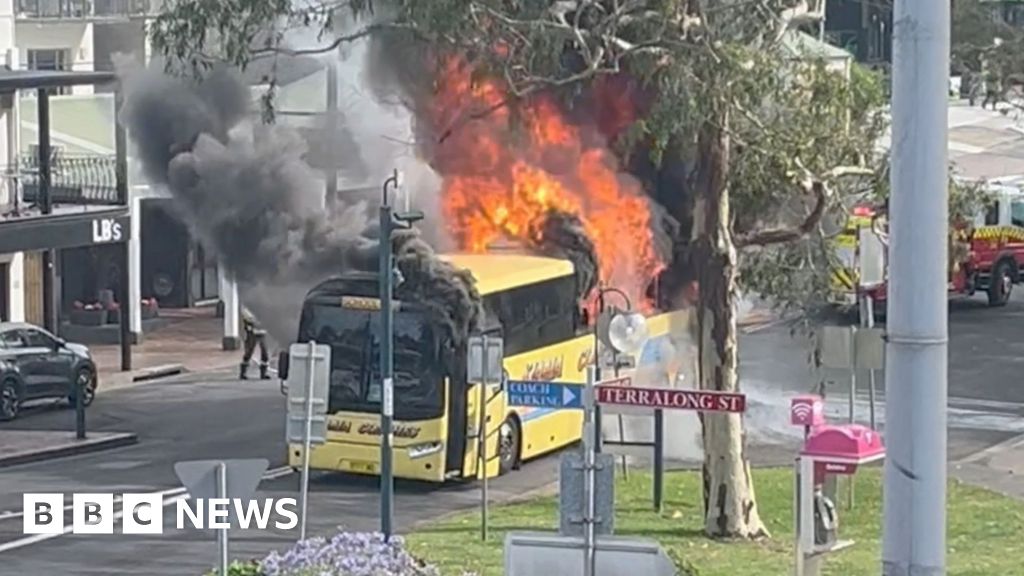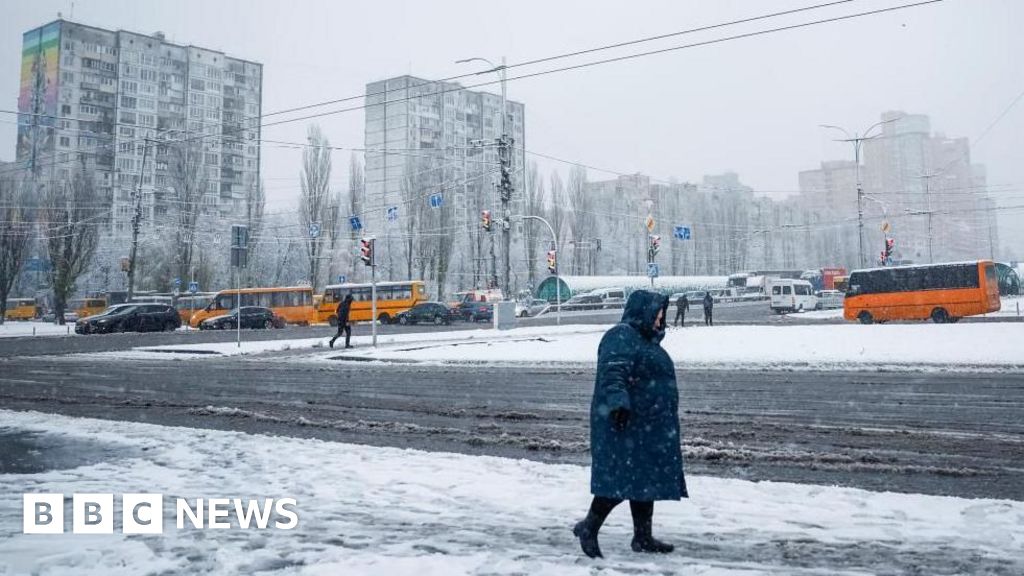ARTICLE AD BOX
22 minutes ago
By Hugo Bachega, Middle East correspondent
The dramatic rescue of four Israeli hostages in Gaza amid efforts to try to get Israel and Hamas to agree to a ceasefire has raised questions over the impact it could have on reaching a deal, as mediated talks show no sign of a breakthrough.
As images of the freed and smiling three men and one woman dominated TV bulletins and news websites, tens of thousands of people joined protests across Israel on Saturday, urging the government to strike an agreement with Hamas for the release of those who are still being held.
“All of them, now!” the crowd chanted in Tel Aviv.
Hamas meanwhile has called the operation, which its health ministry said killed more than 270 Palestinians, a “massacre”.
Being discussed is a three-stage plan announced by US President Joe Biden earlier this month, which he described as an Israeli proposal. It would secure the release of the hostages and, crucially, pave the way for a permanent ceasefire in Gaza.
Notably, the Israeli prime minister, Benjamin Netanyahu, has not openly endorsed the plan. It is not surprising, as he is facing pressure from multiple fronts and seems to be caught between two options: ceasefire or coalition.
The families of the hostages, whose ordeal has gripped the nation, and Israel’s international allies are calling for a deal.
From the people captured in October, 116 remain in captivity; more than a third of them have already been officially declared dead, a number that is probably higher.
Among those against the proposal, full details of which have not been made public, are two of Mr Netanyahu’s far-right ministers, Itamar Ben-Gvir and Bezalel Smotrich.
They have threatened to quit the government if the deal goes ahead, which could lead to the collapse of the Netanyahu coalition.
“Temporarily in Israel there will be more pressure from certain quarters on Netanyahu to not do any deal, that we should continue to do rescue operations,” Gershon Baskin, who helped negotiated a deal with Hamas for the release of captured Israeli soldier Gilad Shalit in 2011, said.
“Anyone who thinks logically and rationally knows that the only way to get [the] hostages home is through a negotiated deal.”
The resignation of Benny Gantz from the emergency government on Sunday is likely to result in more power to both Mr Ben-Gvir and Mr Smotrich – and, possibly, in more pressure from them on Mr Netanyahu.
Described as a moderate, Mr Gantz is considered a possible candidate to be the next prime minister.
In Israel, much of the dispute over the current proposal is around the commitment to a permanent cessation of hostilities – in other words, the end of the war.
Mr Netanyahu has insisted Israel will not accept any plan before the destruction of Hamas’s military and governing capabilities, a choice of words that is vague enough to leave his options open.
“I believe that Netanyahu prefers his coalition over bringing our boys and girls home,” said Michael Hauser Tov, chief political correspondent at the Haaretz newspaper, which is critical of the prime minister.
This is a common suspicion in Israel and elsewhere: that Mr Netanyahu is interested in prolonging the war for his own political survival.
“I think Netanyahu will try to continue with the negotiations only for his international needs and the relationship with President Biden. And, on the other hand, he’ll try to sabotage the negotiations because he wants to keep his coalition stable.”
Hamas has not yet given a formal response to the plan outlined by President Biden. One of its key demands is a guarantee that the Israeli military will not resume its offensive against the group once the hostages are released.
“Hamas, from my experience with them, puts up a position and they stay firm to it. How long can they last? I don’t know,” Mr Baskin said.
“My perception is that the longer Israel continues this war, the easier for [Hamas] to recruit new recruits from bereaved families and people who’ve lost their homes, and an armed insurgency against the Israelis will continue as long as Israel is in Gaza.”
The Israeli rescue in Gaza, which resulted in the death of one Israeli special forces officer, was considered a successful operation by Israel’s top authorities, despite the carnage in Nuseirat that has been largely ignored in Israel.
“If anyone believes that [Saturday’s] operation absolves the government to strike a deal, they are living a fantasy,” Nahum Barnea, an Israeli political commentator, wrote in the Yedioth Ahronoth newspaper.
“The opposite is true. The joy over the successful rescue of the four only evinced the need for a deal.”
Hours after the four freed hostages arrived in a hospital near Tel Aviv, Mr Netanyahu visited them and their families.
It did not go unnoticed that this happened before the end of the Jewish Sabbath, when official activities are often muted, and was accompanied by a torrent of videos and photos released by his team.
“When the ending is bad, the prime minister doesn’t show up. He doesn’t call, either,” Avi Marciano, whose daughter Noa was killed in captivity, wrote on Facebook.
US Secretary of State Antony Blinken is back in the Middle East, his eighth trip to the region since the Hamas attacks, in another effort to push for a deal.
There are also growing concerns that, without a ceasefire in Gaza, violence might escalate along Israel’s border with Lebanon, where the Iranian-backed Hezbollah movement has carried out near-daily attacks.
With a wide gap remaining between Israel and Hamas, US pressure is not a guarantee of progress.
“There’s no quick end to this war… This could theoretically go on for years,” Mr Baskin said. “I really want to be optimistic, but it’s very difficult to be.”
On Monday, US Secretary of State Antony Blinken returns to the Middle East on Monday, his eighth trip to the region since the Hamas attacks, in another effort to push for a deal.
There are also growing concerns that, without a ceasefire in Gaza, violence might escalate along Israel’s border with Lebanon, where the Iranian-backed Hezbollah movement has carried out near-daily attacks.
With a wide gap remaining between Israel and Hamas, US pressure is not a guarantee of progress.
“There’s no quick end to this war… This could theoretically go on for years,” Mr Baskin said. “I really want to be optimistic, but it’s very difficult to be optimistic.”

 5 months ago
17
5 months ago
17








 English (US)
English (US)